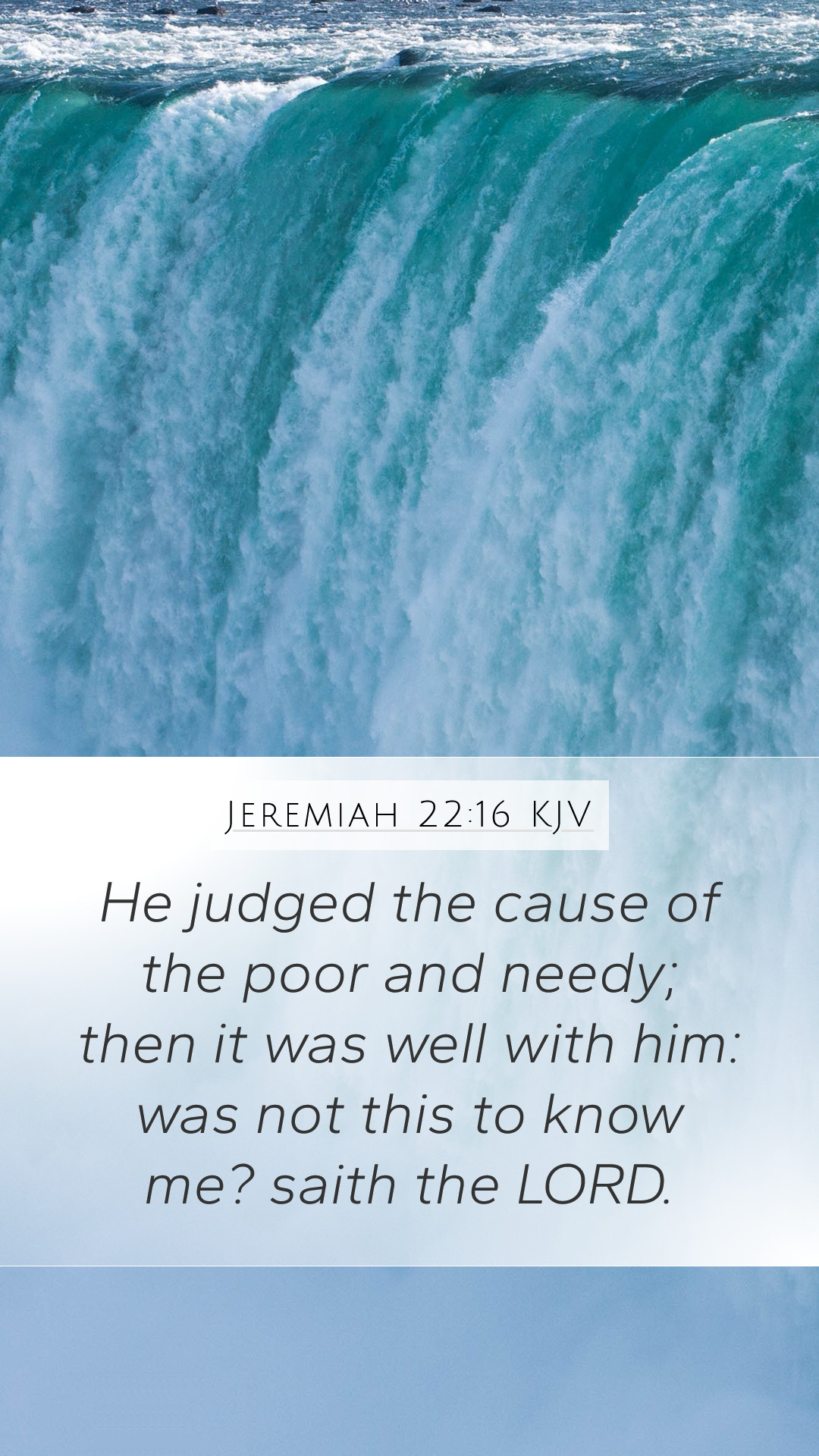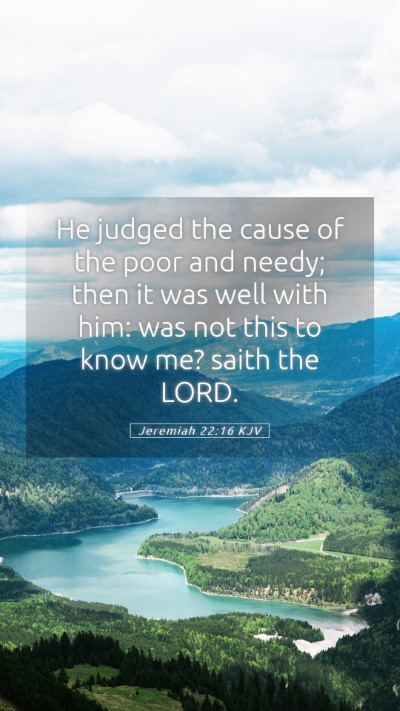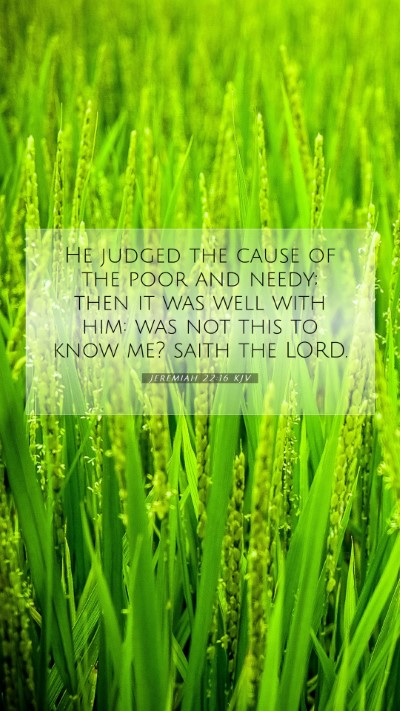Understanding Jeremiah 22:16
Jeremiah 22:16 states:
"He judged the cause of the poor and needy; then it was well with him: was not this to know me? saith the LORD." (KJV)
This verse carries a profound message about justice, righteousness, and the character of true leadership. Below, we will explore its meaning through insights derived from public domain commentaries by notable biblical scholars.
Key Themes in Jeremiah 22:16
- Justice and Righteousness: The act of judging the cause of the poor and needy highlights the importance of social justice.
- Divine Knowledge: Knowing the Lord is associated with the moral obligation to care for those marginalized in society.
- Leadership and Accountability: Leaders are called to reflect God’s nature through their actions toward the oppressed.
Commentary Insights
Matthew Henry, Albert Barnes, and Adam Clarke offer valuable interpretations of this verse:
Matthew Henry's Commentary
Henry emphasizes that true rulers are those who align their judgments with God's justice. He notes:
"Here we are shown what is expected of those in authority: that they should champion the cause of the destitute and those in need. This exemplifies true knowledge of God."
Albert Barnes' Notes
Barnes presents a detailed account of the connection between justice and the acknowledgment of God, stating:
"To know God is to reflect His attributes in one’s life, especially in regards to justice and mercy. The welfare of a leader lies in how well they uphold these principles."
Adam Clarke's Commentary
Clarke delves into the importance of social responsibility and the ethical obligations of leadership:
"The essence of knowing God is found in serving those who are vulnerable. A leader’s greatness is measured by their compassion and actions towards the less fortunate."
Biblical Exegesis and Analysis
To further deepen our understanding of Jeremiah 22:16, we explore its historical and literary context:
- Historical Context: During the time of Jeremiah, Israel faced severe social injustice. The prophet called for leaders to change their corrupt practices.
- Literary Analysis: The verse employs a rhetorical structure that contrasts the actions of the ruler with the expectations of God's law.
- Theological Reflection: The verse serves as a reminder that ethical living is a demonstration of one's relationship with God.
Application of Jeremiah 22:16
This verse remains relevant today, especially in discussions about leadership ethics and social justice:
- Encouragement for Leaders: Modern leaders are called to advocate for the poor and disenfranchised in society.
- Personal Reflection: Individuals are encouraged to examine their own treatment of others and to pursue justice in their communities.
- Group Discussions: Bible study groups can use this verse to facilitate discussions on ethical leadership and social responsibility.
Cross References
Jeremiah 22:16 connects with several other scripture passages that reflect similar themes:
- Proverbs 29:7: "The righteous considereth the cause of the poor: but the wicked regardeth not to know it."
- Psalm 82:3-4: "Defend the poor and fatherless: do justice to the afflicted and needy."
- Isaiah 1:17: "Learn to do well; seek judgment, relieve the oppressed, judge the fatherless, plead for the widow."
Conclusion
In Jeremiah 22:16, we find a compelling call for justice that resonates throughout Scripture. This text challenges both ancient leaders and modern believers to reflect God’s character through their actions, especially in their dealings with the vulnerable.
For those engaging in Bible study and looking for Bible study insights, the interpretation of this verse can pave the way for deeper discussions about understanding Scripture and applying God's teachings in daily life.


